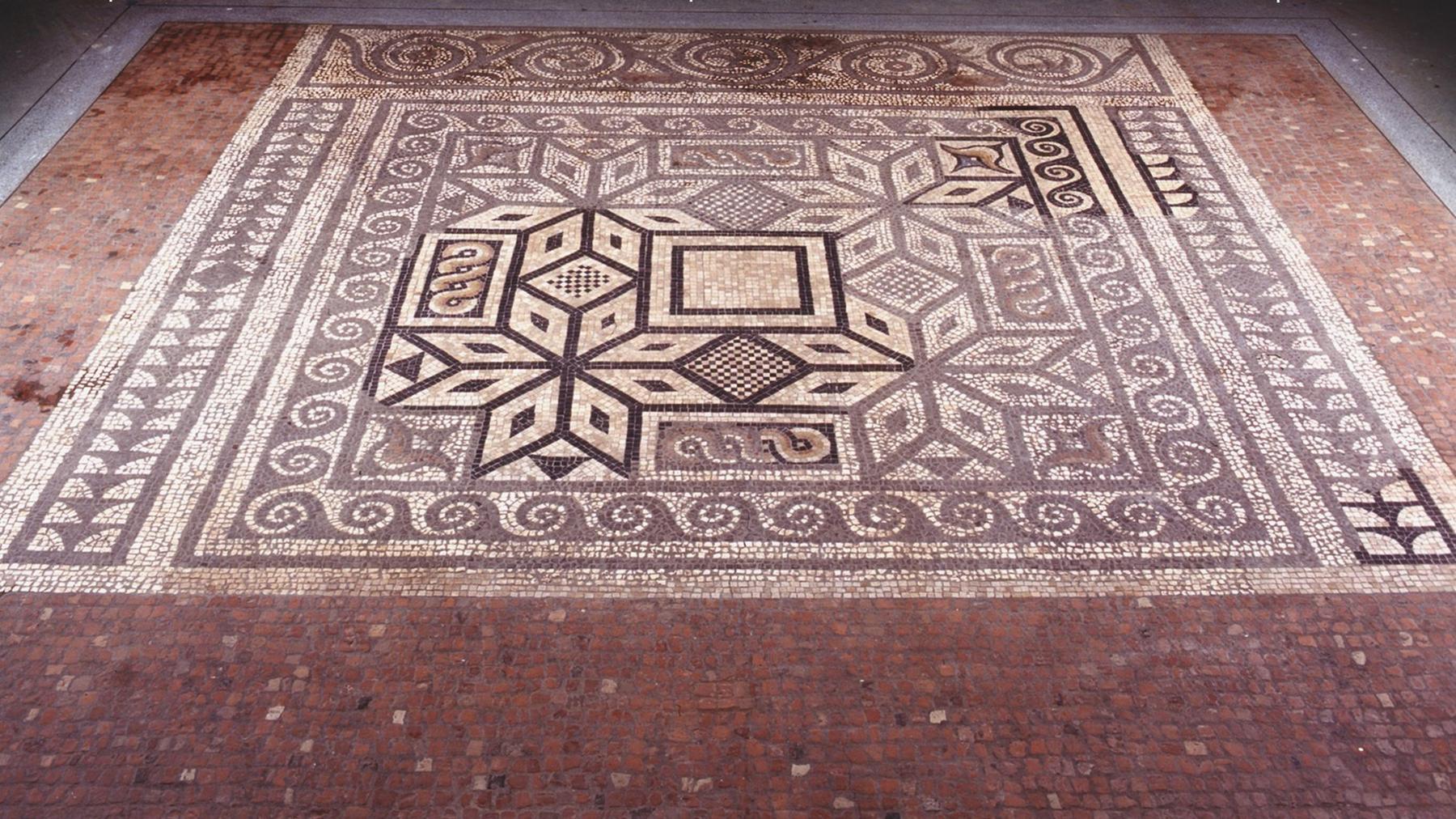Rare Roman floor and museum vandalised in St Albans
- Published
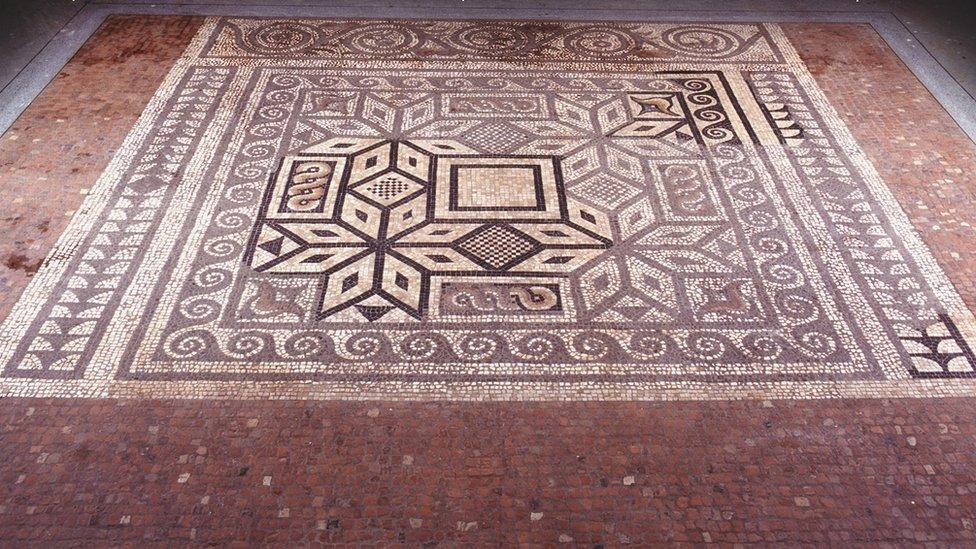
The Roman mosaic floor was discovered strewn with glass and debris
Vandals have targeted an historic Roman hypocaust, or central heating system, that dates back 1,800 years.
Flint rocks were prised out of decorative metal cages surrounding the building housing the hypocaust in Verulamium Park, St Albans.
The stones were hurled at the windows, smashing holes in several of them.
As a result glass fragments and other debris landed on the floor mosaic, but it did not damage the flooring itself, St Albans Museum staff said.
Staff discovered the criminal damage on Sunday and believed vandals struck overnight.
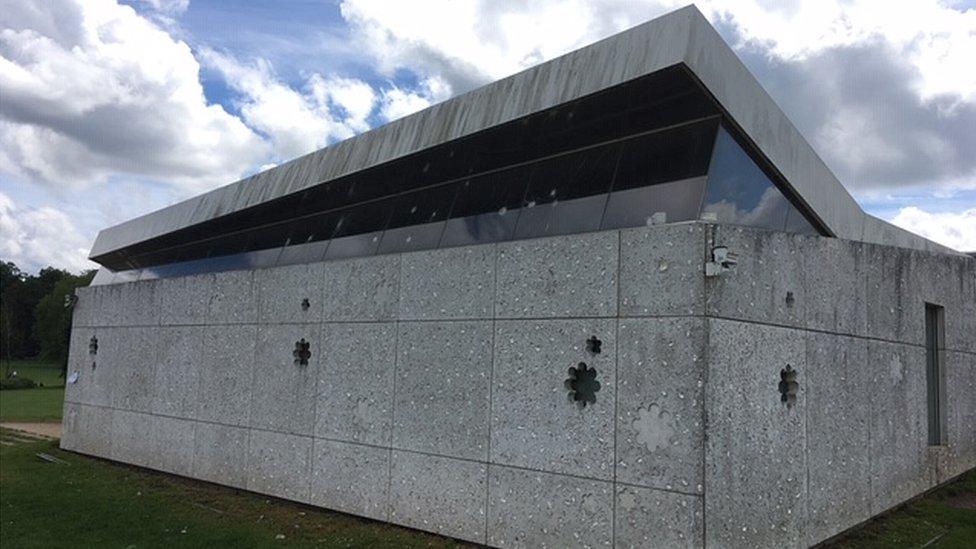
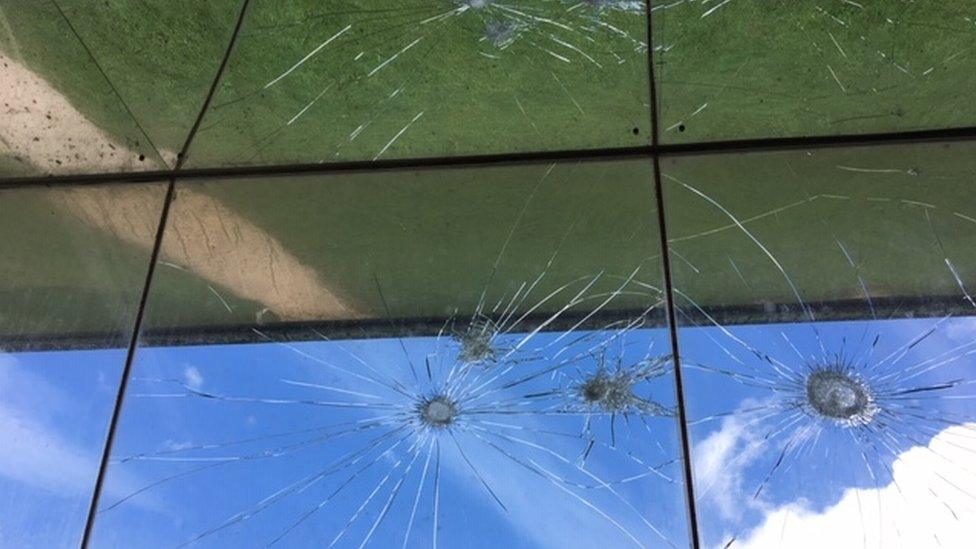
Vandals threw flint rocks at the windows
The hypocaust has been described as "a marvel of Roman engineering" and "an excellent example of the first indoor heating systems installed in Britain" by the museum.
It allowed hot air to circulate beneath the floor and through the walls of buildings.
The intricate mosaic floor is thought to have been part of the reception rooms of a large town house, built around 200 AD near Watling Street, the major Roman road that ran past the city of Verulamium - the Roman name for St Albans.
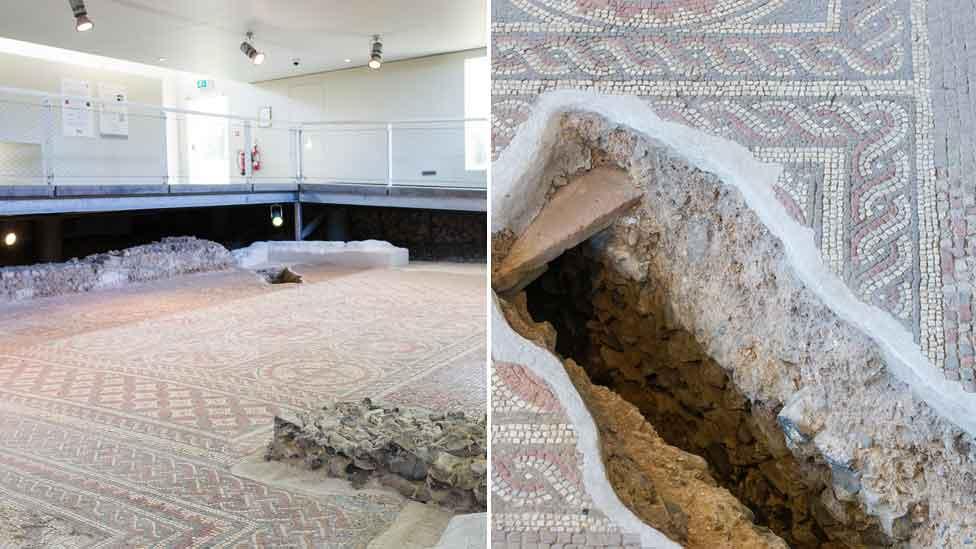
The flooring features a mosaic, which is largely intact, although there are exposed areas of the underfloor hypocaust system
Both the mosaic and hypocaust were uncovered during excavations in the 1930s by archaeologists Sir Mortimer Wheeler and Tessa Wheeler.
They were left preserved underground until 2004 when they were uncovered again, protected by a new building and put on show for free.
Although no major damage appears to have been caused to the mosaic or hypocaust, Hertfordshire county councillor for St Albans East, Anthony Rowlands, said it was "an appalling crime".
Ch Insp Lynda Coates said: "The hypocaust is a really important part of St Albans' history and we have a duty to protect it from mindless vandalism so future generations can enjoy it."
The hypocaust has been reopened to the public.
- Published18 May 2019
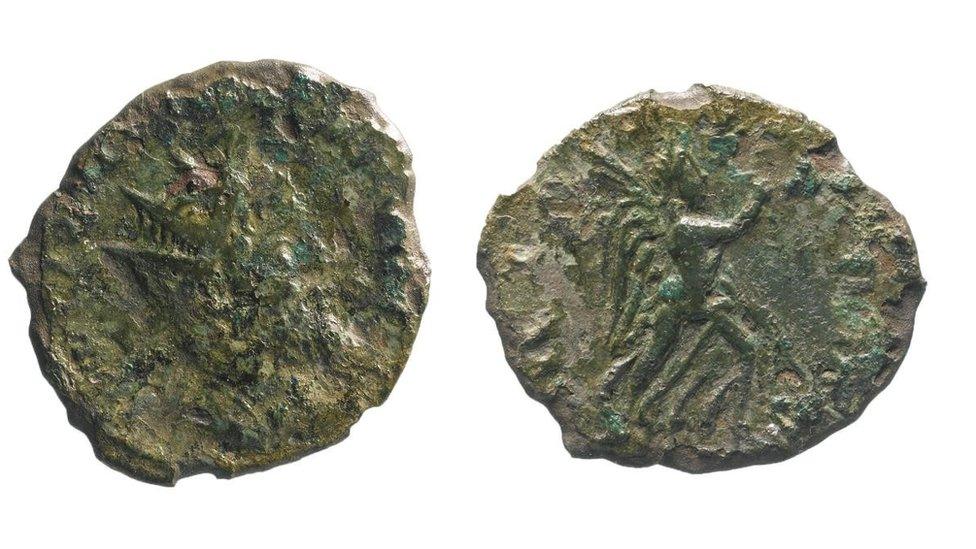
- Published31 July 2016
